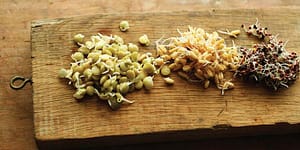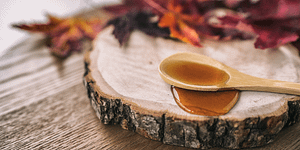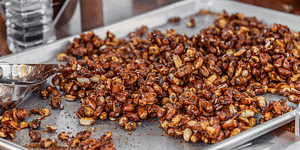Say Cheese! A Simple & Fast Ricotta Cheese Recipe

Cheese lovers, it’s time to add another recipe to your list! Make this easy (and cheesy) ricotta recipe at home in as little as one hour.
The following is an excerpt from The Art of Natural Cheesemaking by David Asher. It has been adapted for the web.
Recipe: Fast Ricotta Cheese
Estimated time frame: 1 hour
Ingredients
- 1 gallon (4L) fresh whey, preferably more
- 1/4 cup (60mL) vinegar per gallon whey or 1/2 cup (120mL) lemon juice
Equipment
- 2-gallon (8L) stainless pot
- Ladle or slotted spoon
- Good cheesecloth
- Stainless strainer
- Large stainless bowl
Yield
-
Between 4 and 8 ounces (100-225g) ricotta per gallon whey
Technique
Bring the whey to a boil: Pour the whey into the pot and bring it to a boil over medium-high heat. Don’t worry about stirring the whey – it will not burn on the bottom of the pot.
But pay attention to the whey as it gets hot: Once it comes to a boil, it can boil over and cause quite a mess!
Pour in the vinegar or lemon juice as the whey is boiling. Don’t bother stirring it; the boiling whey will mix the acid in thoroughly.
Let the whey come to a full rolling boil again, but only for a moment. The high temperatures help to ensure a full ricotta yield.
Let the whey cool for 5 minutes. Turn off the heat, and let the whey settle.
You should begin to see signs of separation: The whey will become clearer and more greenish yellow, and there will be fluffy clouds of ricotta curd that have coagulated out of it. Let the whey cool for 5 minutes to help the ricotta firm up.
Strain the ricotta: Using a ladle or a slotted spoon (depending on the type of whey and the quality of milk, the curds may be easier to harder to strain), scoop up the ricotta that has risen to the top of the pot, and transfer it to a cheesecloth-lined colander perched on the stainless steel bowl.
Let the ricotta drain and cool. Ricotta is best savored while still slightly warm. Once cooled, it should be kept refrigerated.
Recommended Reads
Recent Articles
Nothing says “spring” like a fresh, foraged meal! Savor the flavors of the season with this Milkweed Bud Pizza recipe.
Read MoreWhat’s so great about oyster mushrooms? First, you can add them to the list of foods that can be grown indoors! They are tasty, easy to grow, multiply fast, and they love a variety of substrates, making oyster mushrooms the premium choice. The following is an excerpt from Fresh Food from Small Spaces by R. J.…
Read MoreCraving something sweet? These delicious maple roasted nuts are the perfect treat to help you push through those end-of-winter blues. The following is an excerpt from Full Moon Feast by Jessica Prentice. It has been adapted for the web. The Magic of Maple: A Rich History Following the Hunger Moon, just before the first thaw…
Read More










